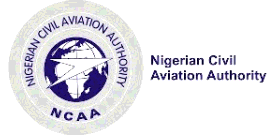 Nigeria’s Aviation Sector Strengthens with NCAA and Aviators Africa Strategic Training Collaboration
Nigeria’s Aviation Sector Strengthens with NCAA and Aviators Africa Strategic Training Collaboration
The Nigeria Civil Aviation Authority (NCAA) and Aviators Africa are charting a new course in regulatory capacity building, signaling a significant step forward for the nation’s aviation standards and for the wider African air transport ecosystem. In a recent meeting at the NCAA headquarters in Abuja, Aviators Africa’s Chief Executive Officer, Toni Ukachukwu, met with the Director General of the NCAA, Capt. Chris Najomo, to discuss a collaborative roadmap that promises to elevate both staff proficiency and institutional effectiveness within Nigeria’s aviation oversight body.
This strategic engagement highlighted a mutual commitment to reinforcing aviation safety, security, and regulatory best practices—critical pillars for Africa’s fast-evolving aviation sector. The spirit of partnership was evident as Ukachukwu lauded the NCAA’s leadership for its continuous drive to raise the bar in aviation regulation. Capt. Najomo, in turn, emphasized that such alliances are essential for ensuring compliance with the rigorous benchmarks set by the International Civil Aviation Organization (ICAO). For stakeholders across sub-Saharan Africa, these developments serve as a timely reminder of the benefits that come from sustained investment in people and processes.
The core of the meeting revolved around expanding training interventions tailored to NCAA personnel. These initiatives aim to equip staff with advanced, industry-relevant skills for effective oversight, particularly as the region faces new challenges and opportunities in aviation. The collaboration is set to deliver customized training programs in non-technical competencies, a critical area often overlooked but increasingly recognized as vital for regulatory agencies. By focusing on mentorship and the co-organization of workshops addressing emerging industry trends, NCAA and Aviators Africa are laying the groundwork for a future-ready workforce.
Ukachukwu articulated the shared vision underpinning the partnership: “Our partnership with NCAA is born out of our shared vision for a safer, more efficient aviation industry in Nigeria and across Africa. We are proud to contribute to the development of world-class regulatory capacity through our collaborative initiatives.” His remarks underscore an understanding that the future of African aviation will be shaped not only by infrastructure or fleet expansion but by the quality and agility of its regulators and professionals.
Capt. Najomo’s endorsement of the alliance points to a broader strategy of aligning local regulatory practices with international standards, a move that will help ensure Nigerian aviation continues to be recognized for both its safety record and operational reliability. The NCAA has long played a pivotal role in setting the benchmark for compliance and oversight, but in a landscape where technological innovation and market demands are accelerating, continuous professional development is now more crucial than ever.
This renewed focus on non-technical training—such as leadership, communication, and decision-making—reflects a shift in global aviation thinking. As safety systems and operational protocols become more sophisticated, the ability to adapt, collaborate, and demonstrate sound judgment is increasingly valued. By integrating mentorship and regular knowledge exchange workshops, the NCAA and Aviators Africa are positioning themselves at the forefront of this evolution, ensuring that Nigerian aviation personnel are well-prepared for both current and future challenges.
For the sub-Saharan African travel and aviation sector, this partnership offers valuable insights. It highlights the importance of strategic alliances in developing the next generation of aviation professionals, capable of upholding the highest regulatory standards while navigating a rapidly changing industry. Such investments in human capital are essential for African countries looking to expand their aviation networks, attract new airlines, and foster greater connectivity both within the continent and internationally.
The collaboration is also likely to have a ripple effect, encouraging other African regulatory agencies and industry stakeholders to prioritize continuous training and professional development. As regulatory excellence becomes a key competitive differentiator, countries that invest in their aviation regulators will be better positioned to capture growth opportunities—from new route approvals to the negotiation of bilateral air service agreements and the safe introduction of new technologies.
The meeting concluded with both Ukachukwu and Capt. Najomo reaffirming their dedication to sustaining this strategic alliance. Their shared vision is clear: to create a robust regulatory environment that not only meets but exceeds global expectations. This commitment will benefit Nigeria’s aviation ecosystem as a whole, from airlines and airports to service providers and passengers, ensuring that the country remains a leader in African aviation and a model for best practices across the continent.
As the industry prepares for future growth and increased international competition, the NCAA’s partnership with Aviators Africa stands out as a proactive blueprint. It’s a reminder to all stakeholders in Africa’s aviation and travel sector that investing in people—and forging the right collaborations—will be the key to unlocking lasting success in the years ahead.
